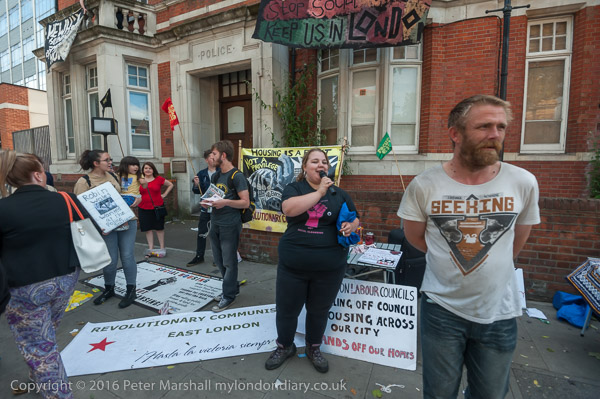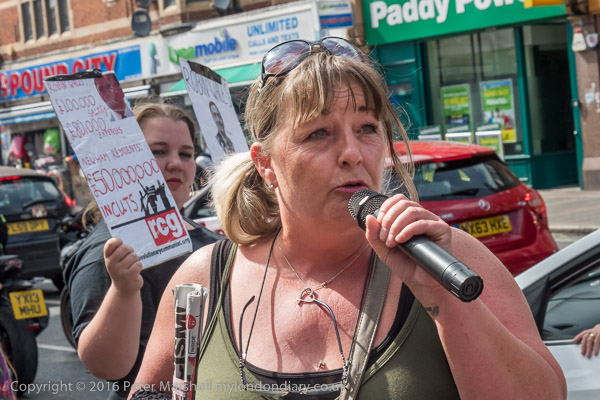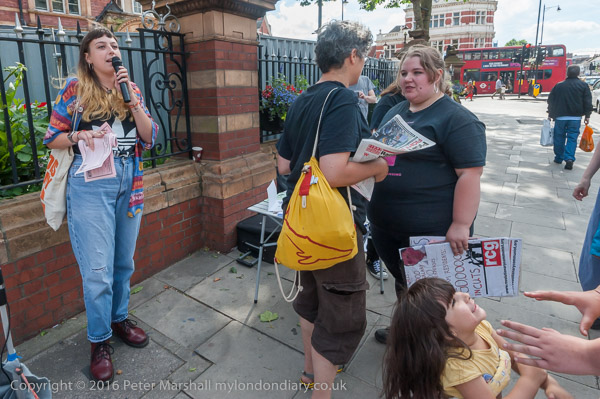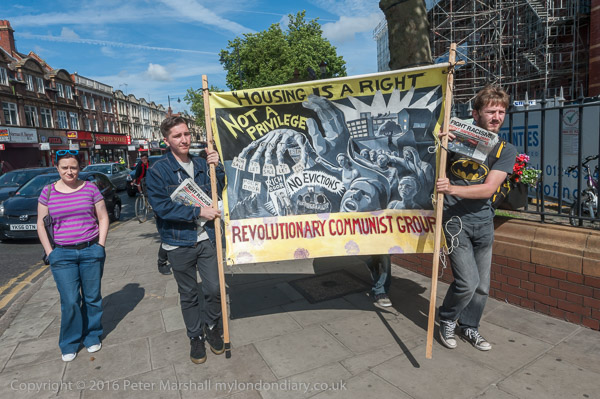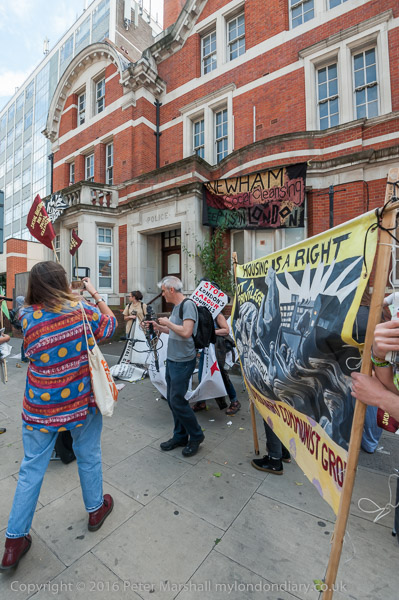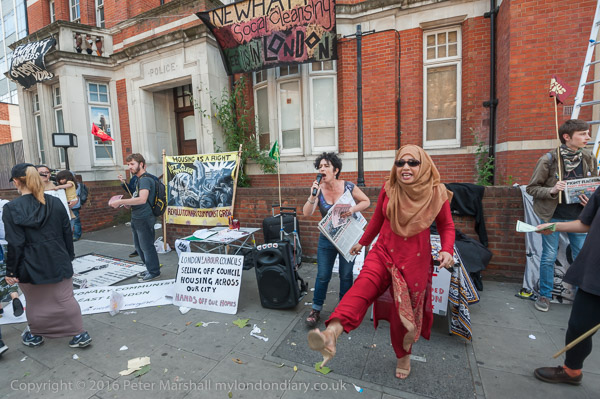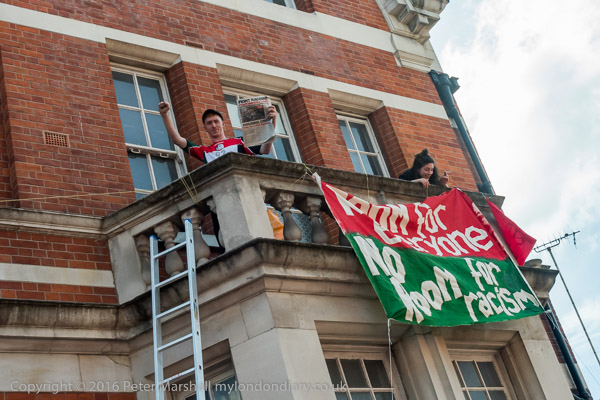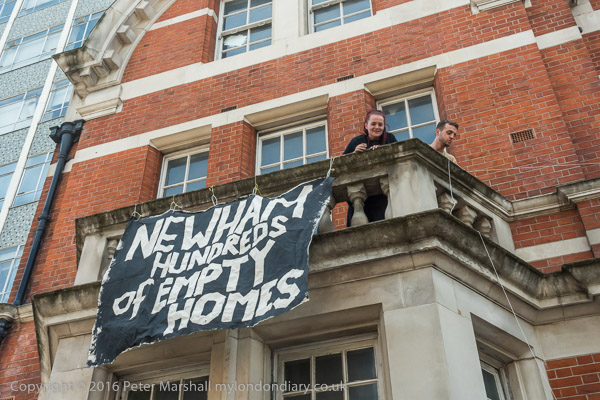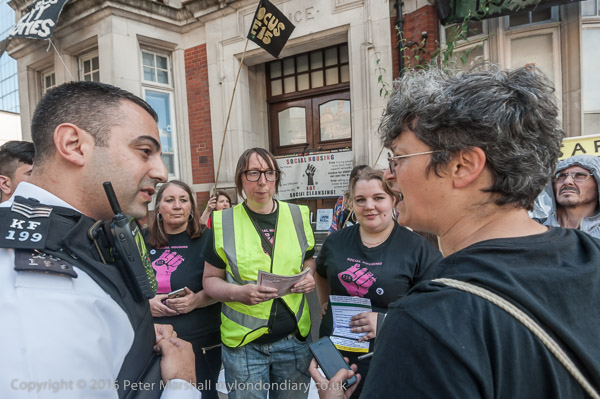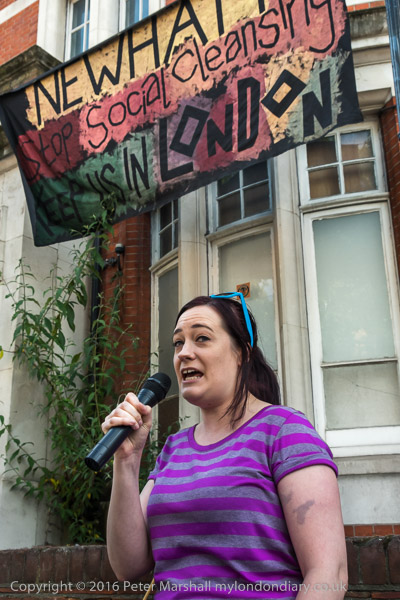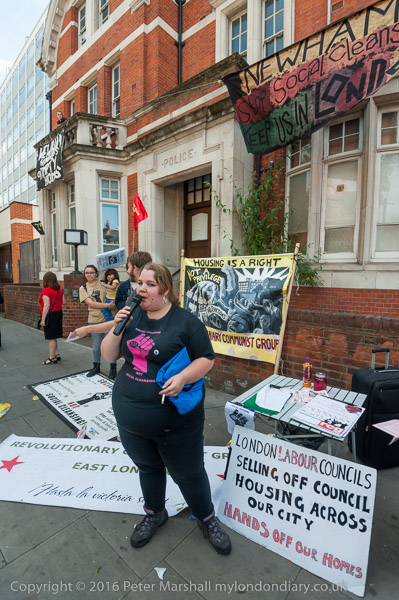Justice for Rashan Charles: On Saturday 29th July 2017 I photographed a protest outside Stoke Newington Police Station over the death of Rashan Charles, who had died after being handcuffed by two police and held on the floor of a shop on Kingsland Road in Dalston in the early morning of Saturday 22nd July.
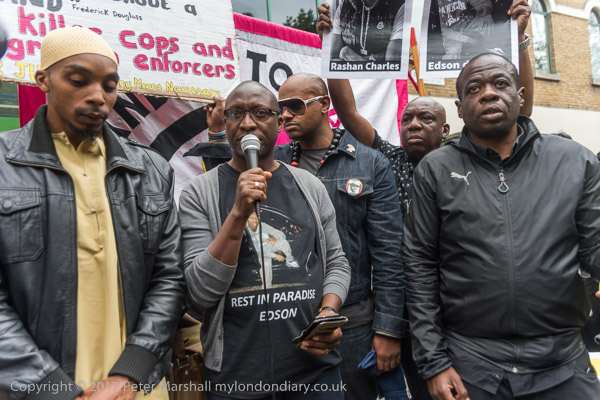
The pictures on this post come from that protest, which was attended by members of his his family as well of those of Edson da Costa who died after being arrested in Beckton the previous month.
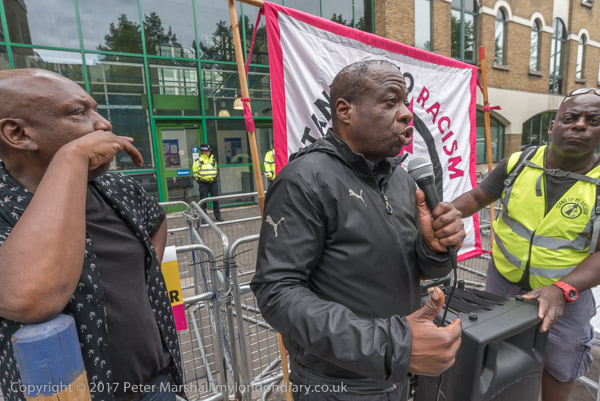
An inquest into the death of Charles returned a verdict of that a package he had swallowed when being chased into the shop by an officer had blocked his airway causing the death. But it also found that the officers had failed to call for an ambulance when they should, but more controversially argued that this would not have saved his life.
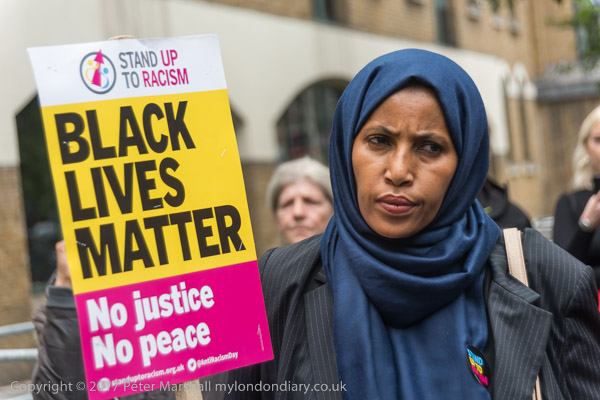
The inquest into Da Costa’s death revealed a number of errors by police but the jury was told by the coroner that “there is no legal or factual basis for reaching a factual conclusion which is critical of the police” and reached a verdict of death by misadventure primarily due to his swallowing a plastic bag of illegal drugs.
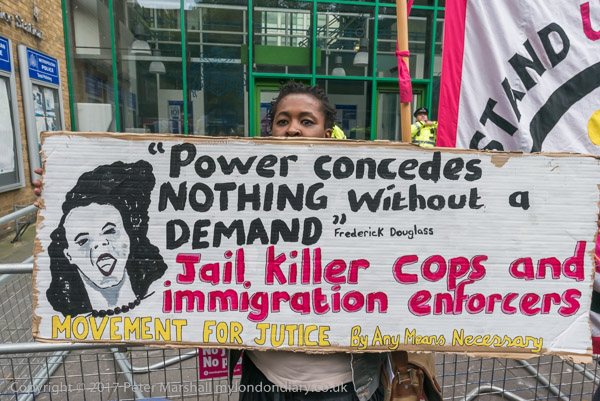
In March 2023, Baroness Louise Casey who had been charged with investigating the Metropolitan Police following the murder of Sarah Everard in 2021, issued her official report with the conclusions that they were guilty of institutional racism, misogyny and homophobia.
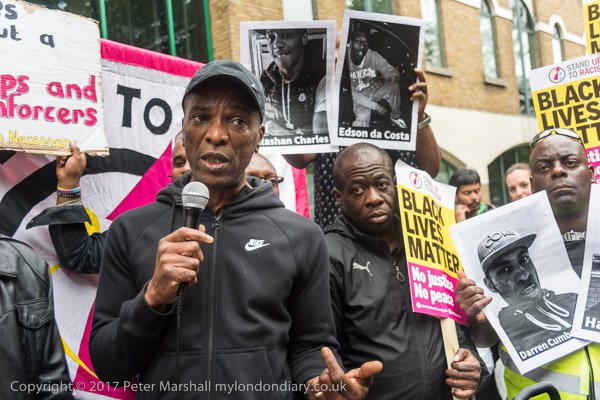
It came as no surprise to those of us who had read the many under-reported stories over the years of people – black and white, men and women – who had been picked on and brutally treated and some killed by police over the years on social media and in minority publications. Nor those of us who had attended protests against their behaviour or watched them in action at times against protesters.
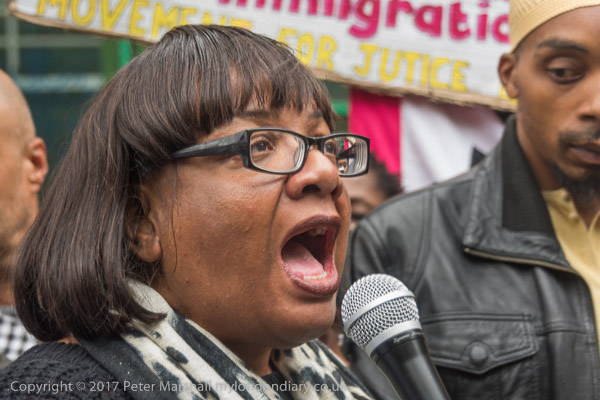
Our mass media have always ignored many of these cases and underplayed others, almost always taking the side of the police and acting more as a PR agency for them, always keen to spread the rumours, lies and misleading press statements the police rush out to excuse their mistakes and misbehaviour.
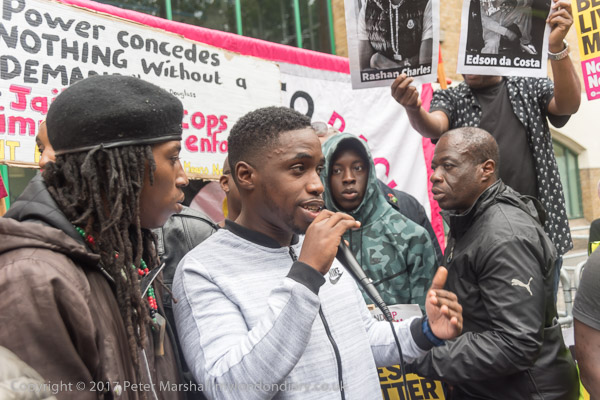
We saw this at its most blatant over Hillsborough, again with the shooting of Jean Charles de Menezes and the killing of Ian Tomlinson while trying to walk back to his hostel through a protest at the Bank of England.
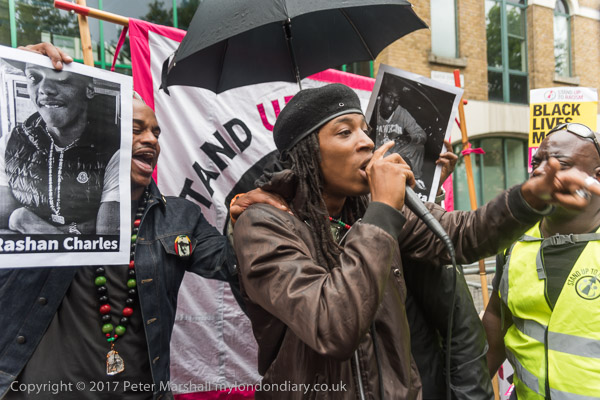
We’ve also seen the deliberate actions by the police to pervert the course of justice in high profile cases including the racist killing of Stephen Lawrence, where they investigated his family and friends while treating one of his killers as a witness. Daniel Morgan’s family have just received an apology and compensation over their failure to properly investigate his axing to death in a Sydenham pub car park in 1987 – a panel concluded that the Met’s “first objective was to protect itself” against the allegations of corruption against some of its officers.
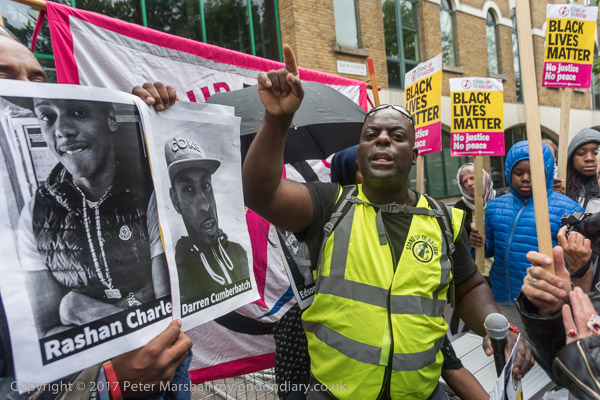
Many other campaigners have exposed deliberate obstruction by police to inquiries into deaths, particularly those in police custody, such as Sean Rigg, which I’ve written about here before.
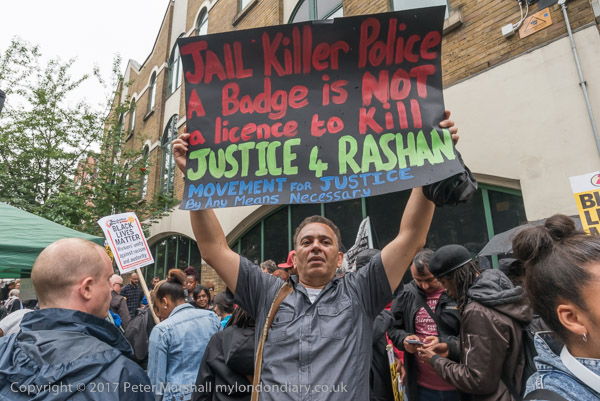
In the last few days, 25 years after his racist murder in Kingston, Lakhvinder Ricky Reel was awarded an honorary degree by Brunel University, part of a long campaign to get justice by his mother Sukhdev Reel.
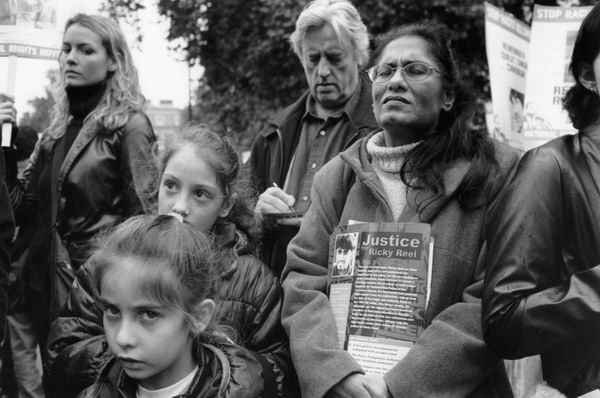
Ricky and his friends had been victims of a racial attack in the town centre and six days later his body was recovered from the Thames. His family had been urging the police to search the river since he disappeared – and his body was found after only 7 minutes of searching. The Met refused to treat his death as a racist attack and made many failures in their investigation, devoting more resources to spying on his family by the undercover Special Demonstration Squad for their campaigning.







